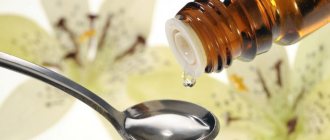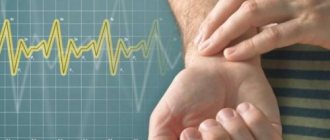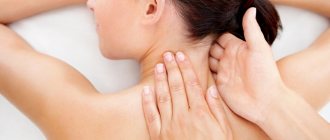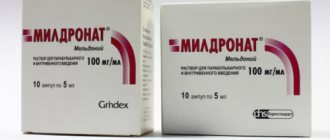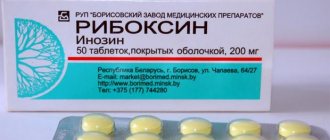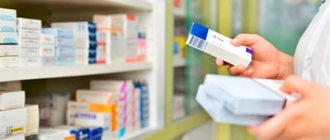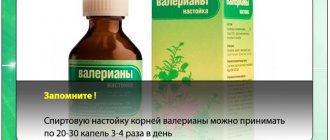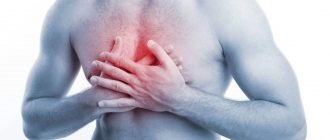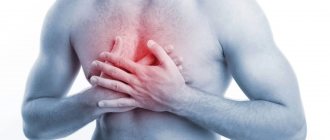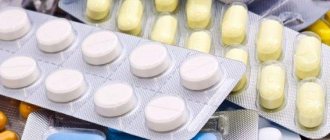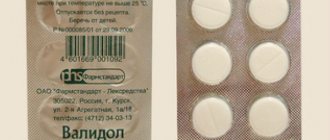Arrhythmia
Dear Doctor! I suffered a heart attack 1.5 years ago. They put a stent in me and opened an artery that was 99% closed. After installing the stent, the artery was 100% open. Before the heart attack, I suffered from atrial fibrillation, but its type was not determined, because It is impossible to do an ECG during an arrhythmia. After a heart attack, a month later the arrhythmia reappeared. The doctor prescribed Cardilok, initially 2.5 mg, when I took it my heart rate began to drop to 39-40 beats per minute. The doctor reduced the dose to 1.25, after a while time, the pulse again became low to 40 beats per minute. Now the doctor suggested further reducing the dose to half of 1.25. However, the arrhythmia itself does not go away and appears periodically. I feel it instantly and take VALIDOL. Validol, as a rule, relieves the arrhythmia for me, but does not eliminate from it for good. I noticed that arrhythmia appears after caffeinated coffee, caffeinated tea, chocolate, alcoholic drinks, as well as after high stress during the day or from nervous experiences, excitement. Sometimes from the cold, but not always and if I’m lying down on the left side. Due to arrhythmia, my quality of life has decreased. My heart almost doesn’t hurt after a heart attack, I can tolerate exercise on exercise machines well, but before training I take validol or menthol candy. Question: Is it possible to get rid of arrhythmia or is this a lifelong problem? Is that correct? I do it by taking VALIDOL, because sometimes I take it several times a day. Doesn’t the body get used to it? In addition, I take asririn 100 mg, lepidor (for cholesterol) 20 mg, and Triteis (for blood pressure) 0.25 mg. The pressure is low (100-110x 70-80, but there are jumps up to 140x85-90. What can you advise me? Thanks in advance.
Hello, dear doctor! My name is Olesya, I'm 29 years old, tall and thin. About 6 years ago, an ECG was done, the conclusion was: hypoxia of the lower wall of the left ventricular myocardium. No treatment was prescribed. A few weeks ago I began to suffer from constant pain in my back, left shoulder blade, left side of my chest, and sometimes in my neck. It hurts, it chews, it aches. I went to the therapist, they did an ECG, the conclusion was: ischemia of the lower wall of the left ventricular myocardium. They did an ultrasound of the heart, in general everything was normal, without any special features.
Hello, for the last two years I have been experiencing very strong pains in the heart, of a completely different nature, sometimes acute pain, sometimes a feeling of constriction, suddenly it becomes cold, there is also a feeling as if the heart is being strongly squeezed or stretched. I have been checked more than once, doctors blame everything on goiter, either endocrine or diffuse, there are no definite answers. According to the doctors, blood tests and ECG are normal, except that there are more leukocytes than necessary. and the ECG shows sinus tachycardia, it seems.
Cardiology in questions and answers
Today, cardiologist of the highest category Sergei CHAZOV answers readers’ questions
Check your cholesterol levels
In me (50 years old), echocardiography revealed the following changes: initial manifestations of aortic atherosclerosis, left ventricular hypertrophy, interventricular septum with foci of cardiosclerosis, disturbances in ventricular conduction, diffuse decrease in repolarization processes in the myocardium. My blood pressure is always normal - 120/80. Maybe these are age-related changes?
How serious are they? Is therapy needed?
N. Smirnova, Taganrog
I THINK that such changes may be associated with atherosclerotic changes in blood vessels. To clarify the degree of influence of such changes on the functions of the heart muscle, I would recommend ECG monitoring and (or) bicycle ergometry (VEM). These methods, by recording an ECG during everyday or increased stress, make it possible to identify signs of coronary heart disease (CHD) at an early stage, when a person does not yet experience pain. It makes sense to check the level of cholesterol and glucose in the blood, blood clotting indicators. But regardless of the examination result, the need for preventive courses of treatment in your case exists. I would recommend taking antioxidants (Aevit, Triovit) or drugs such as Mildronate, Preductal.
Herbal preparations are preferable
Hello! I am 33 years old. Lately, I almost constantly feel a rapid heartbeat, I want to inhale more air. Before going to bed (while lying down), there are interruptions and the pulse ranges from 80 to 113. Corvalol helps. Blood pressure is usually 100/60, but is often lower. There were similar problems before, but the cardiogram did not show anything special. I am currently planning a pregnancy and don’t know how I will save myself. You can’t take Corvalol and Valocordin, right?
Vera S. Sochi
WHEN PLANNING a pregnancy, you are absolutely right to pay attention to your health. Considering the complaints of palpitations, I would advise ECG monitoring to clarify the nature of such attacks. If changes are detected, you should contact a cardiologist for treatment. You can take Corvalol and Valocordin, but it is better to use herbal sedatives in the absence of real arrhythmia.
Why is it hard to breathe
My husband (27 years old) has been complaining of attacks of this kind for several days now: his heart hurts, it becomes difficult to breathe, but soon everything goes away on its own. What could it be?
Svetlana M. Tula
YOUR HUSBAND needs to be examined by a cardiologist and neurologist for the presence and/or exclusion of vegetative-vascular dystonia or even coronary heart disease.
Are there a lot of extrasystoles?
My wife has some extrasystoles in the amount of about 12,000 per day. Tell me, what is this and how dangerous is it?
Evgeniy S. Kaluga
EXTRASYSTOLES (ES) are extraordinary contractions of the heart. Normally, the heart does not work absolutely rhythmically; a small amount of ES is present in healthy people. But ES can also be a manifestation of heart disease or cause complications. I advise you to consult a cardiologist as soon as possible to clarify the causes of ES and treatment.
Or maybe it's osteochondrosis?
Hello, Doctor! I am 29 years old. For the last 6-7 years I have been experiencing sharp pain in the left side of my chest. The pain varies: sharply stabbing under the left breast or pulling from the shoulder to the chest. In any case, the pain is such that you have to lie down and wait for about five minutes. This happens periodically, infrequently. I can't find the reason.
Not related to physical activity.
Anton Pyryev, Chelyabinsk
The MOST common cause of such sensations is osteochondrosis of the thoracic spine, less often - diseases of the peripheral nerves (intercostal neuralgia), lungs, and pleura. To clarify the diagnosis, I recommend contacting a therapist and neurologist.
Pressure jumps
I am 26 years old. I have been suffering from sudden surges in blood pressure for 3 years now. Several times a day, the pressure increases for 5–10 minutes. then it subsides on its own. They did an ultrasound of the kidneys - everything was fine. Blood sugar is normal, blood is good. I had unbearable headaches during the races. At first they thought it was because of the back, but the x-ray showed nothing. Then they made a diagnosis - VSD of the hypertensive type. The cardiogram showed a pronounced change in the myocardium of the left ventricular wall. What is this? Is this serious? Is it possible to get rid of pressure surges? I am very afraid that I will have severe headaches again.
Sveta M. Krasnodar
In YOUR case, it makes sense to conduct an examination of the adrenal glands, since their damage often causes sudden surges in pressure, accompanied by a severe headache in combination with some other symptoms. To do this, you should contact an endocrinologist to perform an ultrasound or computed tomography scan of the adrenal glands and, possibly, determine the level of adrenal hormones in the urine.
You may cause a seizure
My father, a surgeon with 40 years of experience (he is 78 years old), has recently often suffered from attacks of atrial fibrillation. At the same time, it seems to him that the attacks begin after eating. He has been practically starving for the last two weeks, he is simply afraid to eat. Can food in the smallest amount provoke an attack? It seems to me that his condition is caused by neurotic reasons. What do you recommend?
A. Bukin, Chita
ATTACKS of atrial fibrillation (AF) can occur after eating, especially when overeating. In such cases, it is recommended to eat 4-6 times a day in small portions. Of course, there may be neurotic reasons, but I think that only sedatives will be ineffective in your case. I would advise you to consult a cardiologist or arrhythmologist at a regional cardiac center to clarify the possibility of surgical treatment of paroxysms of atrial fibrillation.
Consultation required
Very strange pains began in the chest area on the left: they radiate to the left arm. Sometimes it feels like something inside is bothering you, something is aching. It is impossible to lie on the stomach and on the left side, it is difficult to breathe. I was told that this happens with neuralgia, but I definitely feel that the heart rhythm is off. I am contacting you because I am currently in Central Asia, and it is difficult to find a qualified doctor here.
A. S. Samarkand
REALLY, similar sensations occur with osteochondrosis of the spine, intercostal neuralgia. An arrhythmic variant of coronary heart disease is also not excluded. An examination is necessary to more accurately determine the diagnosis. To do this, I advise you to contact a cardiologist and neurologist, who will conduct the necessary tests and prescribe treatment.
Dressler syndrome
My husband (48 years old) has a pre-infarction condition and is in the hospital. A friend who had this diagnosis says that he needs to rule out the Dreisler effect. What it is?
A. Korneva, Orel
APPEARANTLY, we are talking about the so-called. Dressler's syndrome. This syndrome is a kind of allergic reaction of the body to the development of necrosis (death) of a section of the heart muscle. In mild cases, signs of this condition are revealed only by examining a general blood test; in more severe cases, prolonged rises in temperature and the development of inflammation of the pericardium (around the heart) or pleura are possible.
Not harmful
Can you take Corvalol, validol, valerian as sedatives if your heart is still healthy? Isn't this harmful?
I. B-va, Novosibirsk
NO, it's not harmful. Corvalol, validol and valerian can be taken even in the absence of heart disease.
Natalia VOLODINA
conclusions
Tachycardia is one of the most common heart rhythm disorders. It is a normal response to the activation of the sympathetic nervous system and the release of adrenaline. At the same time, this is a common symptom of psychosomatic diseases such as vegetative-vascular dystonia and neurasthenia. This condition often occurs during pregnancy.
“Validol” for common palpitations is the most popular remedy due to its cheapness and the absence of side effects and serious contraindications. However, doctors often doubt its effectiveness. In any case, before taking any drug, you should consult a doctor, because only he can really determine the need for a specific prescription.
EXTRASYSTOLES
Extrasystoles are a type of heart rhythm disturbance (see Arrhythmias), in which extraordinary premature single or repeated contractions of the heart occur.
Causes. Extrasystoles arise due to the generation of impulses outside their usual source (sinus node). This can occur with various myocardial diseases: myocarditis, coronary heart disease. acute myocardial infarction. cardiomyopathies. toxic damage to the heart (for example, due to alcohol abuse), etc. In addition, extrasystoles often occur during emotional stress, fatigue, and in other cases, being a manifestation of neuro-circulatory dystonia. cardialgia. Extrasystole can appear with diseases of the abdominal organs: with exacerbation of cholecystitis, stomach diseases, with overeating.
Kinds. Extrasystoles are distinguished according to the place of origin of the extraordinary impulse: atrial, ventricular and from the atrioventricular junction. There are rare (less than 5 in 1 minute) and frequent, single and group (several extrasystoles in a row) extrasystoles.
Symptoms Sometimes extrasystoles are not subjectively perceived by a person. Usually, extrasystoles are manifested by a feeling of interruptions in the work of the heart, “failures,” “fading,” and unpleasant pulsation. When counting the pulse rate, its irregularity with the appearance of long intervals is revealed. Extrasystole can occur during physical exertion (more often with myocardial diseases), with a rise in blood pressure or, conversely, at rest (usually not associated with heart damage).
The prognosis of extrasystole is determined by the underlying disease that caused the extrasystole. In neurocirculatory dystonia and many cardialgia, extrasystoles do not pose a threat to health, especially if they are rare. In case of coronary heart disease, especially acute myocardial infarction, extrasystoles may indicate oxygen starvation of the heart muscle and require urgent measures. Frequent and group extrasystoles are especially dangerous. In any case, only a doctor can determine the cause of extrasystole and prescribe treatment.
Diagnosis of extrasystoles is carried out using electrocardiography. and echocardiography and other methods help to establish the cause of extrasystoles. Sometimes Holter monitoring is used - a multi-hour recording of an electrocardiogram using a recording device constantly worn by the patient.
Treatment is carried out by a doctor. You can independently use sedatives (valerian, motherwort), Corvalol - 15-20 drops (Valocordin), Validol (1 tablet on the tongue), Votchal drops (10-20 drops), Panangin - 1 tablet.
Prevention comes down to treating the underlying disease.
What effect does the drug have?
“Validol” is one of the most common drugs in our country, which is used not only for palpitations, but also for other arrhythmias, as well as for the relief of angina pectoris, headaches while taking “Nitroglycerin”, as a sedative for neurasthenia, vegetative-vascular dystonia and even with insect bites.
Actually, “Validol” is a trade name. The active ingredient is menthol dissolved in isovaleric acid methyl ester.
"Validol" belongs to the group of reflex vasodilators. The molecules of the substance, when they enter special chemical receptors in the oral mucosa, have a stimulating effect. As a result, the processes of synthesis of so-called “pleasure hormones” – endorphins, dynorphins, enkephalins – are activated in the brain. They have a calming effect on the nervous system, thereby reducing pulse and blood pressure.
Also, under the influence of the irritating effect of Validol, other biologically active substances are released, for example, histamine and kinins. One of their main effects is vasodilation, which helps relieve angina attacks.
"Validol" is absorbed under the tongue (sublingually), so its effect begins within a few minutes. For adults, a single dose is 1-2 tablets; you can take 4 tablets per day. and more. If a therapeutic effect is not observed, it is necessary to choose another drug.
